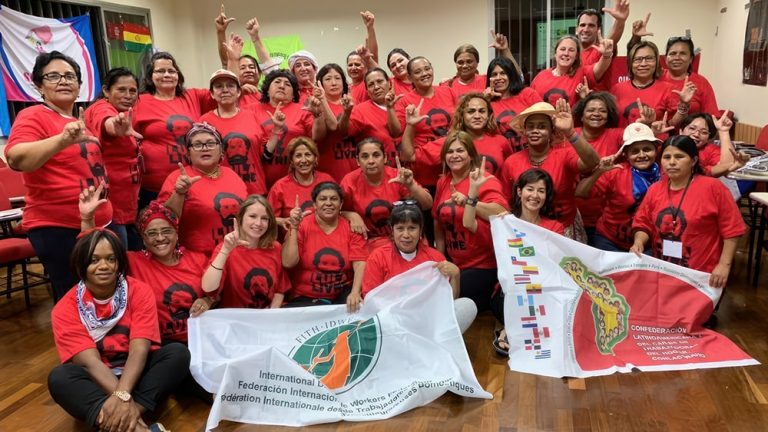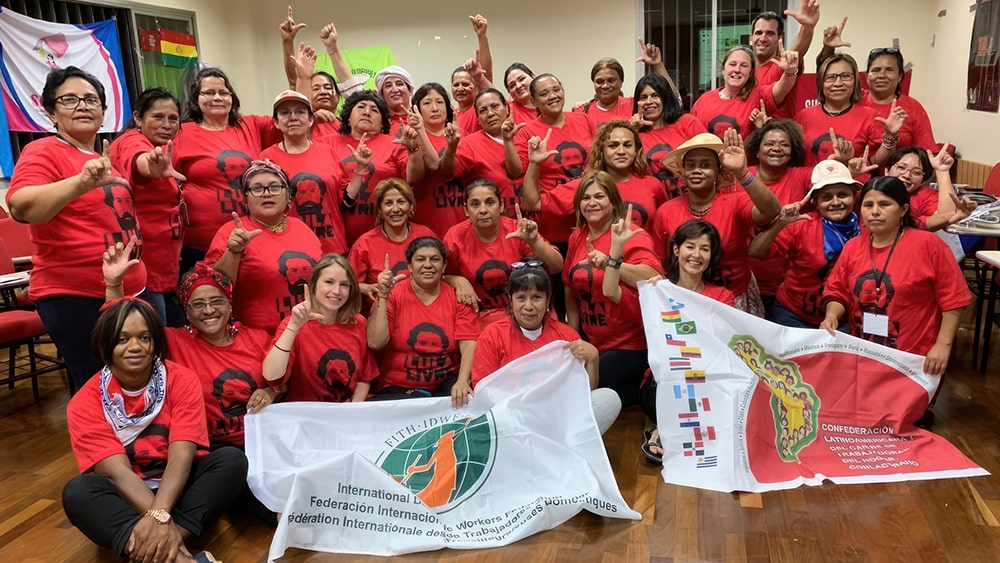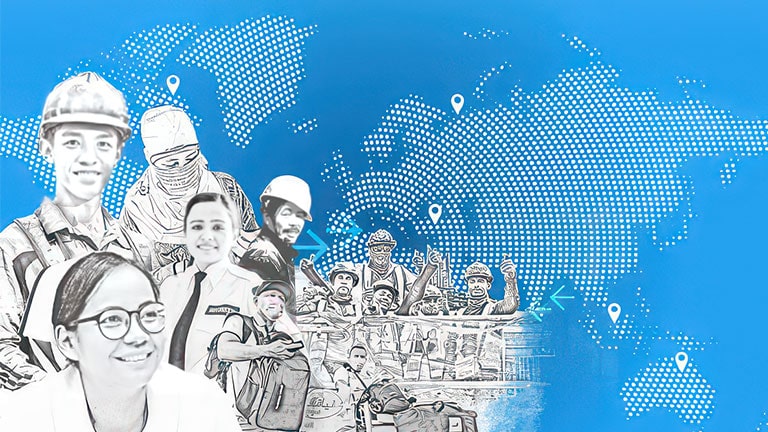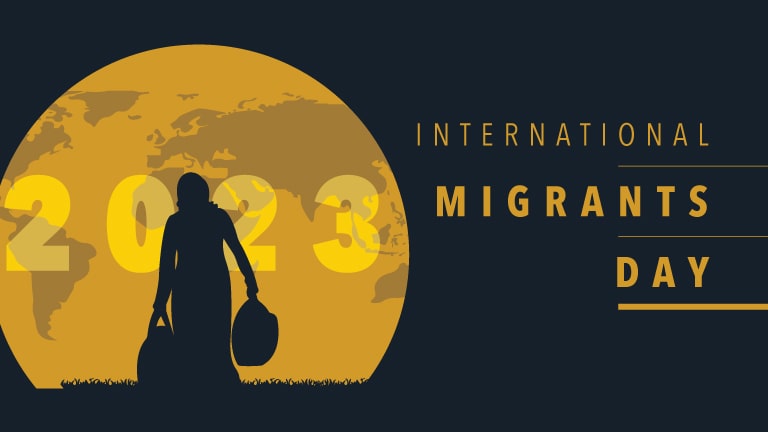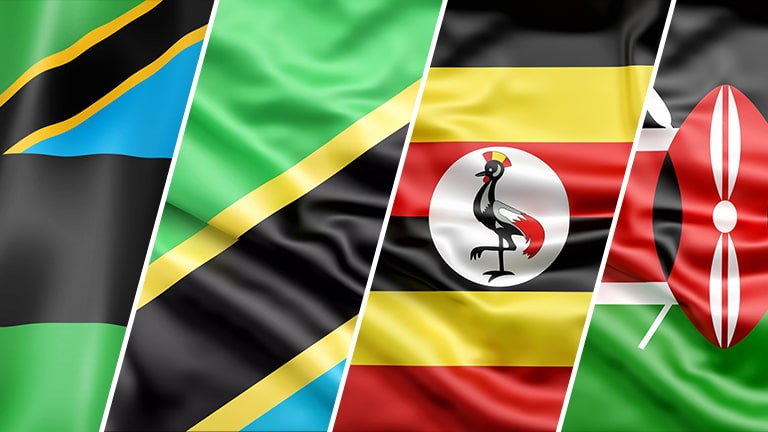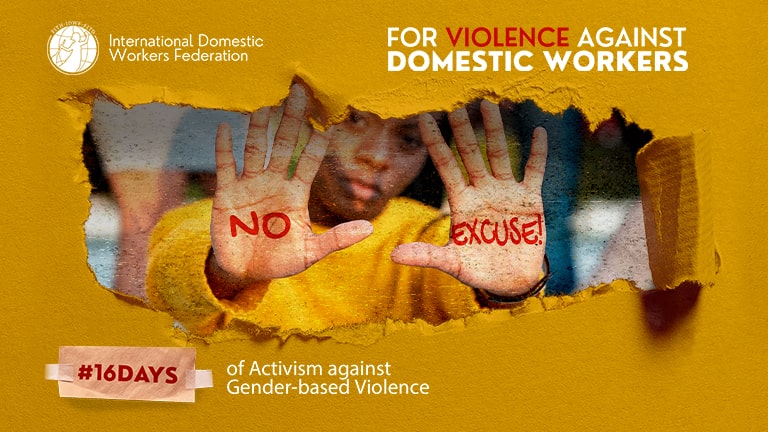The IDWF-MFA conference statement of “Enhancing Collective Advocacy, Action and Empowerment of Domestic Workers in Asia”, 22-24 Oct 2017, Manila, Philippines.
Details
“I always give help to other domestic workers who do not have food, no day off. This has to change”. – Nasrikah, migrant domestic worker in Malaysia”.
“I’ve been working for 35 years as a domestic worker, but nobody asked what my needs are?” – Malini, migrant domestic worker in Lebanon.
These poignant testimonies of Nasrikah and Malini, echo the life situation of millions of domestic workers, who are living in the shadows of society and whose work in the household is viewed as menial and unskilled. However, it is this invisible but invaluable work, that enables millions of employers to work and keep their households afloat.
Domestic worker leaders and representatives, domestic workers unions and federations, migrant groups and advocates, trade unions, civil society, lawyers, academics and members of parliament from ASEAN Members countries Cambodia, Indonesia, Malaysia, the Philippines, Singapore and Thailand- and other Asian countries (Bangladesh, India, Nepal, Pakistan, Sri Lanka, Hong Kong, Taiwan, Kuwait, Qatar, Jordan and Lebanon) came together on 22-24 October 2017 in Manila for a regional gathering, to take stock of the developments six years after the adoption of the ILO Convention 189 on Decent Work for Domestic Workers (C189).
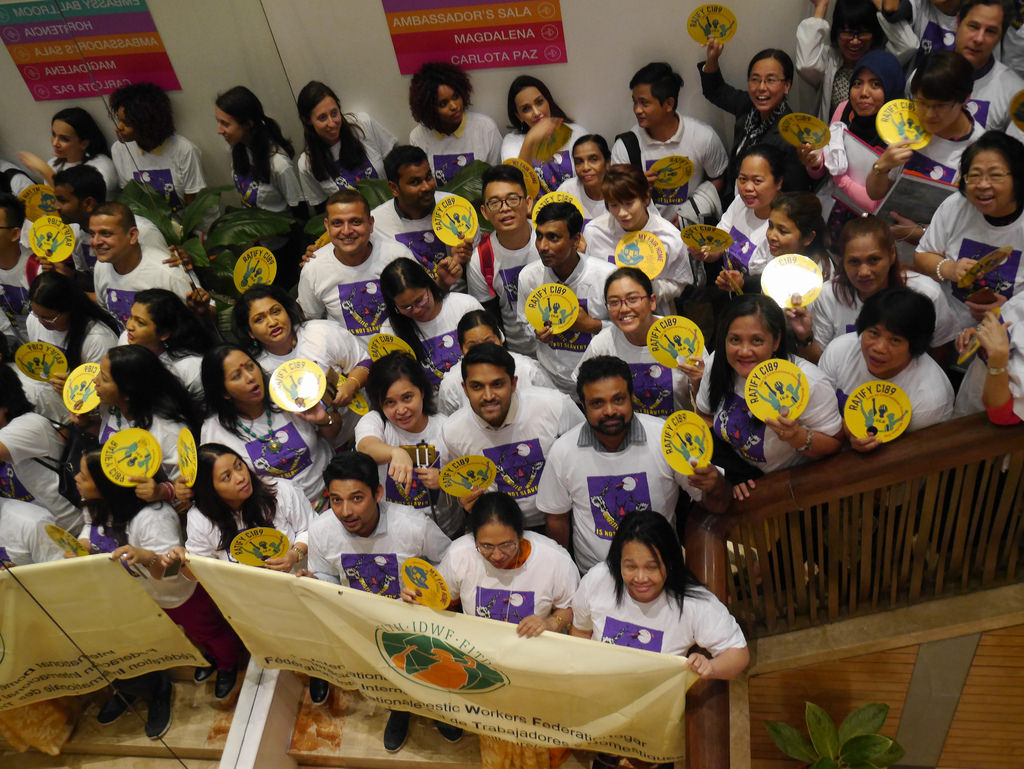
We reflected and deliberated on the policy changes in relation to domestic work, real life situation of domestic workers, strategies, priorities, projects and programmes. We celebrated our successes and confronted our challenges.
We assessed that while ASEAN Member States have taken measures to increase protection of domestic workers, they still remain excluded from minimum wage protection, overtime pay, guaranteed weekly day off, social security, and other fair terms of employment. They remain largely excluded from national labour laws and denied their fundamental labour rights, particularly the right to organize and form trade unions.
Access to justice is obstructed and aggravated by discriminatory, complicated, long administrative and legal procedures; lack of information on legal recourse and available redress mechanisms.
Migrant domestic workers, just like other low-paid category of workers, receive meager wages which are not enough to sustain their families. They are, therefore, trapped in a vicious cycle of temporary migration because of lack of decent employment opportunities, indebtedness and lack of sustainable reintegration programs.
Even 50 years after its establishment, ASEAN demonstrates a lack of collective political will to address the above issues and provide minimum protection for domestic workers in the region. In 2007, ASEAN committed to put in a place a protection instrument for migrant workers as enshrined in the ASEAN Declaration on the Protection and Promotion of the Rights of Migrant Workers (Cebu Declaration). At the forthcoming 31st ASEAN Summit in November 2017, ASEAN proposes that the protection instrument to be adopted is a non-binding “Consensus on the Protection and Promotion of the Rights of Migrant Workers”. This falls short of the principles and commitments of the Cebu Declaration.
The ASEAN Forum on Migrant Labour (AFML) to be held on 25-26 October 2017 in Manila will focus on decent work for domestic workers. We are calling on the ASEAN Member States to listen to the voices of domestic workers and ratify ILO Convention 189.
According to the ILO Assistant Director –General and Regional Director for Asia and the Pacific Tomoko Nishimoto, there are around 10 million domestic workers in Southeast Asia and the Pacific. Domestic workers comprise nearly 20 percent of all migrant workers in the ASEAN region and majority of them are women. She further added that the regions’ ageing population, declining fertility rates and the increasing participation of women in labour force will mean the continued growth in the demand for domestic workers in ASEAN. At present there is already huge population and high demand for domestic workers from ASEAN who are employed in other regions e.g. Middle East, East Asia, Europe and North America.
All these call for urgent and effective policies, instruments and mechanisms to protect and promote the rights of domestic workers. Therefore, we urge ASEAN and the member states to commit to the following:
Protection of domestic workers in labour and social laws
- Adhere to core UN standards and ILO fundamental principles and rights at work including ILO Convention 189.
- Adopt a binding ASEAN instrument for the protection and promotion of the rights of all migrant workers in ASEAN including domestic workers.
- Adopt immediately ILO’s proposed ASEAN Regional Model Competency Standards (RMCS) for Domestic Work and use these standards are designed to be used as a basis for developing national standards and as a regional reference point.
- Ensure inclusion of domestic workers in relevant national laws and regulations.
- Full coverage should be extended to domestic workers in particular with respect to wages, working hours, overtime compensation, social protection benefits, etc. Wages and benefits should be progressively enhanced towards a living wage and decent working conditions.
- Repeal discriminatory policies and practices that infringe upon their labour rights and family and reproductive rights.
- Develop inclusive and sustainable reintegration policies and programs.
Fundamental principles and rights at work for domestic workers
- ASEAN should recognise domestic workers’ right to organize and fundamental rights at work (collective bargaining, assembly, etc.). Governments must provide an enabling environment where domestic workers are able to exercise these rights freely and without any intimidation. These rights are guaranteed by Article 3 of C189.
- Domestic workers should be able to freely exercise their trade union activities and join unions of their own choice.
Social Protection
Ensure full inclusion of domestic workers in existing social protection systems (social welfare/assistance, social safety net, retirement, insurance/pension schemes, etc). Ensure and provide for the portability of social protection benefits both within the country, and between countries of origin and destination.
- Effectively implement the 2013 Regional Framework and Action Plan to Implement the ASEAN Declaration on Strengthening Social protection.
- Right to maternity protections, health care (reproductive and gender specific preventive care), gender responsive education and training, adequate housing, insurance schemes, access to essential social services should be explicitly included in employment contracts.
- Repeal policies of contract termination and deportation on the grounds of pregnancy and communicable diseases, such as HIV/AIDS.
End the climate of xenophobia and discrimination
- Take measures to eliminate all forms of racial discrimination and related intolerance against domestic workers.
- Ensure access to healthcare facilities and provision of workers’ compensation for occupational injuries, diseases, disabilities and casualties irrespective of occupational areas, nationality and status of migrant domestic workers.
Domestic Work is Work!
Domestic Workers are Workers! Domestic Work is not a slave labour!
Source: IDWF and MFA

